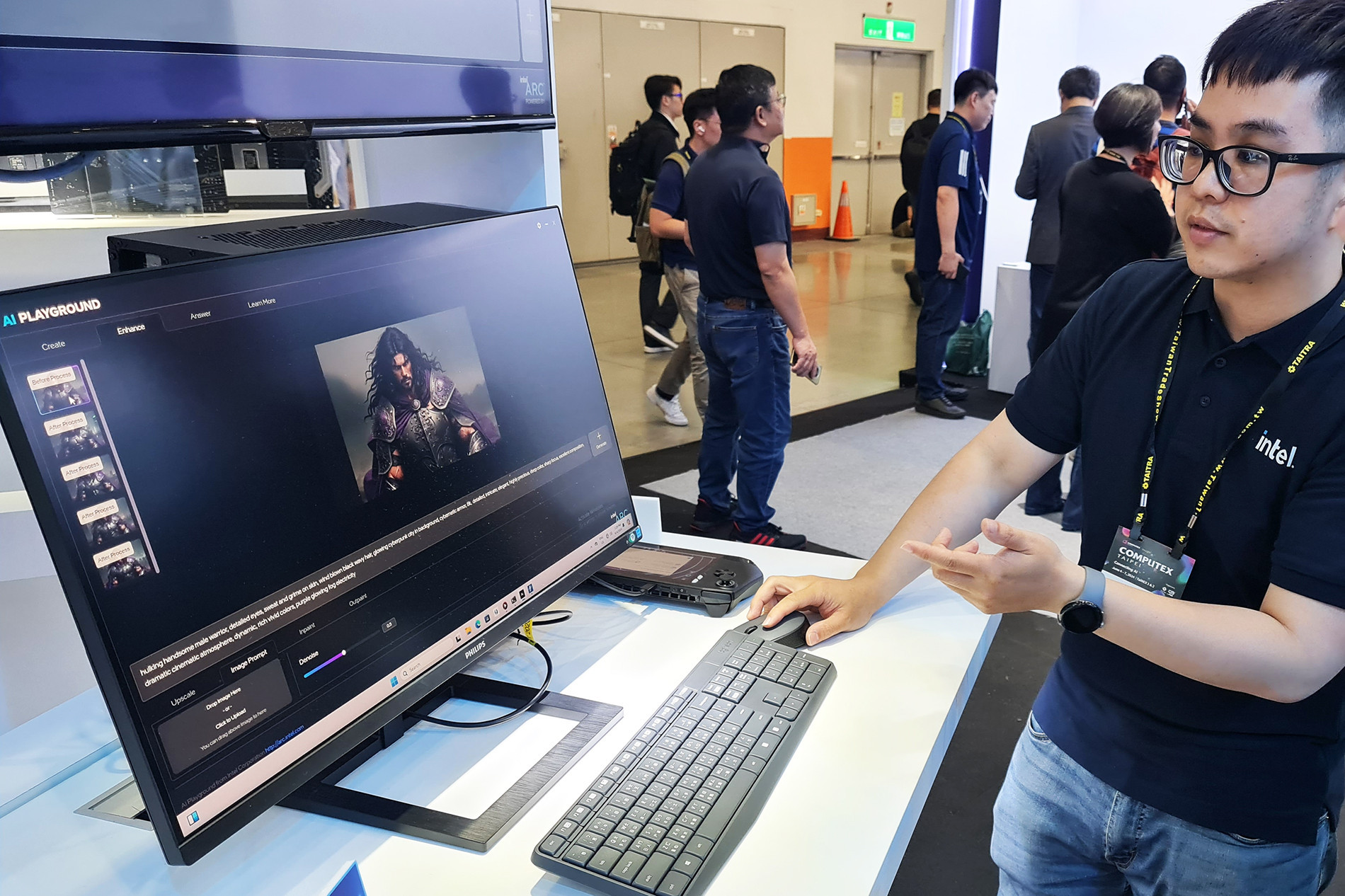
AI is not just an emerging technology, but has quickly become one of the most attractive fields.
Vo Xuan Hoai, deputy director of the National Innovation Center (NIC), said the world’s tech giants such as Nvidia, Microsoft, Google and Meta all consider AI as the strategic leading-edge industry in the future. This has created ‘thirst’ for an AI workforce, especially for the chip designing, education and healthcare sectors.
“They all plan to utilize AI to develop technologies as well as develop AI-based devices. The tendency now is using AI to do other works, such as designing chips. The AI applications in healthcare and education sectors have also been popular,” Hoai said.
Commenting about the demand for AI workforce, he said in the last two years, tech giants in the world have been eyeing Vietnam as the country that has workers, intellectuals and engineers with good AI application capability.
“There will be positive and optimistic signs in the time to come, with the participation of large technology groups in the Vietnamese market,” Hoai said.
Dang Minh Tuan, head of the CMC Technology Application Institute, while affirming that the interest by the tech giants in AI workforce has increased in recent years, pointed out that the Vietnamese potential AI market is lacking high-quality workforce.
“AI is very hot and many enterprises need it. AI covers a large sphere, from image and sound processing, to natural language and intelligence data processing. And each field needs specific skills,” he said.
“The demand for a workforce in AI is extremely high in the world, but there is a shortage,” Tuan said.
In Vietnam, the PM in 2021 launched the national AI development strategy by 2030 with emphasis on the workforce development and the establishment of national innovation centers, and training and research incubators in AI, which shows that Vietnam has been aware of the importance to develop its AI workforce and has been making great efforts to develop the technology.
According to Hoai, training in the AI sector is more favored than other majors.
To produce workers in semiconductor chips, there must be systems for practice. To produce workers in mechanical engineering, there must be machines. Meanwhile, for AI, the training can be implemented online. Therefore, the AI replication and spreading will be very fast.
“Vietnamese youth have good foundation and just need short-term training for 3-6 months to be able to satisfy the current requirements in the market,” Hoai said.
He said that NIC is cooperating with Google to reserve 40,000 scholarships for online training each year, including AI training in accordance with standard program with the certificates to be granted by Google.
NIC is going to cooperate with Qualcomm to have more such online training courses.
With the cooperation, thousands of Vietnamese students will have opportunities to access training programs with international standards. This is a great move to help Vietnam improve its AI workforce quality.
Another thing that Vietnam needs to do, according to Hoai, is establish AI faculties at universities.
The workers majoring in AI are mostly produced at Information Technology Faculty, or Computing Science Faculty at universities. However, Vietnam has had the first AI Faculty, at the Posts and Telecommunications Institute of Technology (PTIT).
At the event, PTIT, FPT Smart Cloud and Ericsson exchanged cooperation agreements on researching, training and developing human resources in AI.
Hoai believes that the pioneering by PTIT may give a push to other universities and prompt them to open AI faculties of their own.
According to Tuan, AI workers in Vietnam are from two sources, university training and short-term training with students from related majors.
The appearance of AI faculties at universities is a good sign as it will help AI training become more specialized.
“CMC even wants to establish an AI university. The school will not only teach AI, but also AI applications in education and training,” Tuan said.
Amid strong AI development, Vietnam cannot stand aside. With the right strategies, Vietnam can become one of the leading countries in training AI human resources, which aims at meeting domestic needs and also reaching out to the world.
Trong Dat